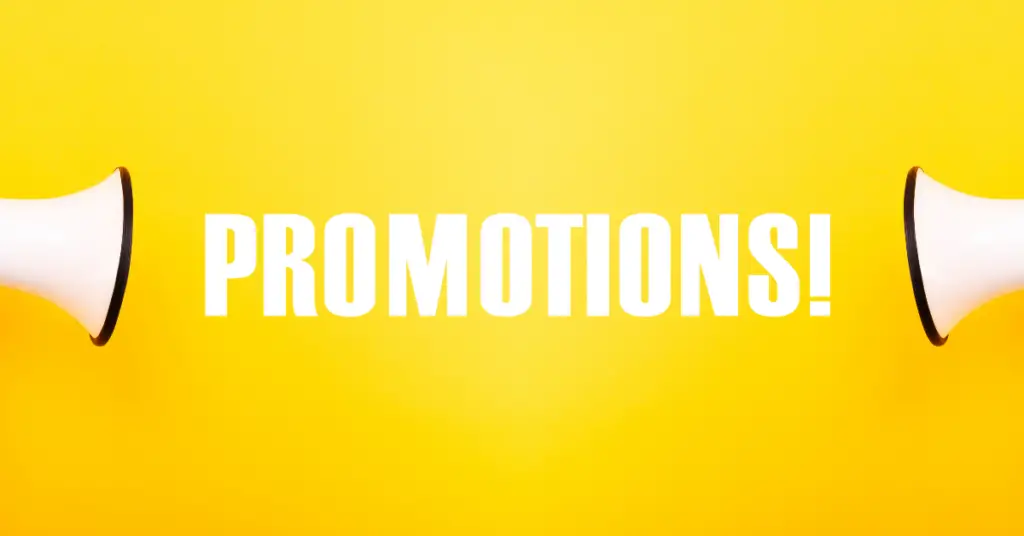DEFINITIONS OF PROMOTION
Promotion or advertising is the marketing communication process that involves information, persuasion and influence. In other words, advertising is a way of “counting” and “selling”. It is a way of creating or influencing the impression that a product exists through various means such as advertising, sales promotions, and personal selling.
According to McCarthy, “Advertising refers to any method that conveys to the target market the right product, sold in the right place, at the right price. Advertising includes sales promotions, advertising and personal selling.
Promotion is generally defined as those marketing activities that provide additional value or incentive to the sales force, dealer or end user and can drive immediate sales.
Promotion is any action taken to make or increase sales.
This term often refers specifically to sales efforts designed to complement face-to-face selling and advertising and, through coordination, make them more effective. In other words, sales promotion refers to specialized activities other than personal selling and advertising that a business undertakes to promote sales.
Promotion includes all the tools of the marketing mix, the main task of which is convincing communication, explains Philip Kotler.
IMPORTANCE OF A PROMOTION
A company’s promotions perform many functions in marketing to achieve specific desired effects.
Provide information. Companies also use promotions to provide information. Movie theaters use promotions like traffic programs to increase customer traffic. Frequency card promotions are primarily designed to drive traffic from existing customers. New customers may also be attracted to the promotion if they find out about it.
Promotional activities help create more job opportunities for the unemployed since promotional activities cannot be carried out without the help of an effective sales force and specialists in various fields.
Promotion helps in product sales support. Sales promotion makes the seller’s efforts more productive. Provides good support for selling different types of goods. Selling different types of goods in the market is very necessary to strengthen the market economy.
Devices like contests, reward coupons, etc. They can be used faster than other promotional methods like advertising. Increasing the acceptance speed of the product is very important in the competitive market. Therefore, it is necessary to increase the speed of the product.
SALES & MARKETING TOOLS
Sales promotions are generally divided into two main categories, ie consumer-oriented activities and trade-oriented activities.
A.Consumer-centric advertising tools aim to increase sales from existing consumers and attract new customers to businesses. Also called a pull strategy. It includes the following:
1) Free Samples
Small units of free samples are delivered door-to-door, mailed, included with another product, or given with the purchase of another product.
2) Coupons
These are the offering of discounts or savings to customers when purchasing a specific product. Coupons can be mailed or bundled with other products or included in a magazine or newspaper ad.
3) Exchange policy
In this case, the customer exchanges the old product for a new one. This sales promotion tool is used by various durable goods companies.
4) Discounts
Refers to the price reduction on a specific item during a specific period. It is common during festival season or off-season.
5) Premium Offers
These can be additional quantities of the same product at the regular price. For example, Colgate offered 125g in a tube priced at 100g.
6) Personal Promotions
This type of promotion is used to attract the largest possible number of customers to a store and to promote the sale of a particular item. For example, a famous athlete personality can be hired to sign autographs for customers visiting a sporting goods store.
7) Installment
Purchase Here the consumer first pays a smaller part of the price and the balance in monthly installments over a certain period of time. For example, durable goods such as refrigerators and cars are sold in installments.
B. Trade-Oriented
Trade-oriented promotional programs target the Company’s distribution network to encourage them to sell more of the Company’s brand than other brands.It is also known as the push strategy.
1) Cash Rewards
May be in the form of an additional case for every five cases ordered, cash rebates or direct cash payments to encourage volume sales, product exposure or to encourage a price reduction for customers.
2) Stock Returns
Some companies reclaim some or all of unsold stock from retailers and redistribute it to other retailers when there is a demand for such stock. dealer.
4) Dealer conferences
A company can organize dealer conferences and thus the dealers can also give valuable suggestions for the company at such conferences.
5) Trophy distributor
Trophies, the distributor can receive a special gift, such as a sponsored tour inside or outside the country.

Erzsebet Frey (Eli Frey) is an ecologist and online entrepreneur with a Master of Science in Ecology from the University of Belgrade. Originally from Serbia, she has lived in Sri Lanka since 2017. Eli has worked internationally in countries like Oman, Brazil, Germany, and Sri Lanka. In 2018, she expanded into SEO and blogging, completing courses from UC Davis and Edinburgh. Besides Litepreneur, Eli has founded multiple websites focused on biology, ecology, environmental science, sustainable and simple living, and outdoor activities. She enjoys creating nature and simple living videos on YouTube and participates in speleology, diving, and hiking.

